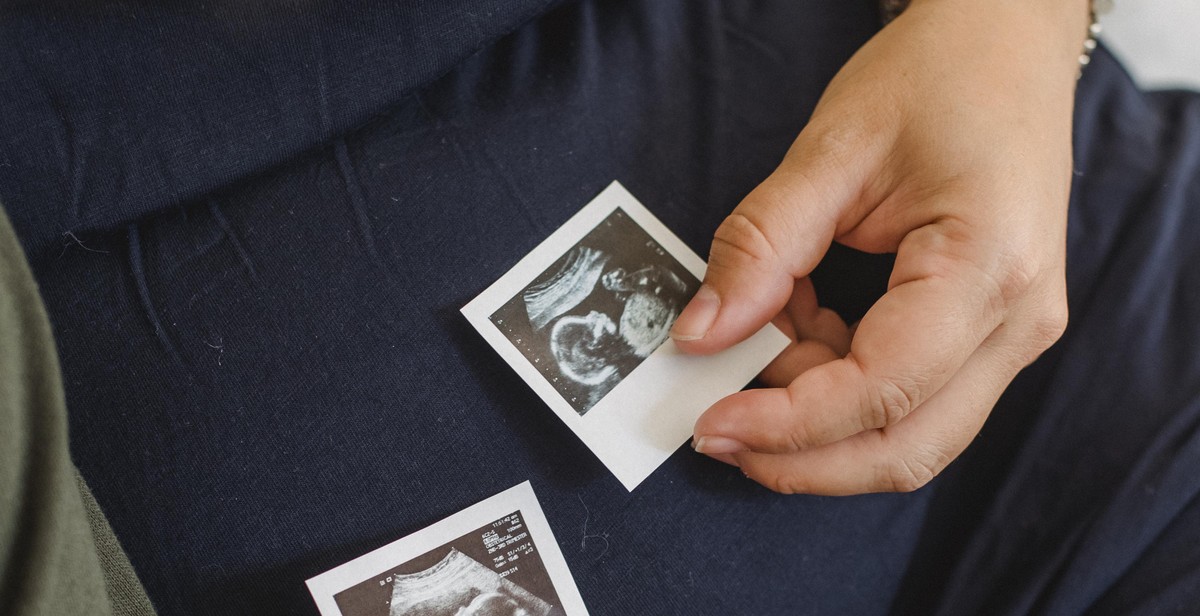Understanding and Handling Love Addictions
Love is a powerful emotion that can bring immense joy and fulfillment to our lives. However, for some individuals, love can become an addiction that can be just as destructive as any substance or behavior. Love addiction is a psychological condition that involves an unhealthy obsession with romantic relationships. It can manifest in a variety of ways, including constantly seeking out new partners, staying in toxic relationships, or feeling a deep need for validation and attention from a romantic partner.
Love addiction can have serious consequences for individuals and their loved ones. It can lead to codependency, low self-esteem, and even mental health issues like depression and anxiety. Understanding the root causes of love addiction and learning how to handle it is crucial for those who struggle with this condition.
The Causes of Love Addiction
Love addiction can stem from a variety of factors, including childhood trauma, attachment issues, and a lack of healthy emotional regulation skills. Individuals who experience love addiction may have a history of unstable or dysfunctional relationships, and may struggle with feelings of insecurity and low self-worth.
The Signs of Love Addiction
Some common signs of love addiction include obsessive thoughts about a partner, constantly seeking out new romantic relationships, feeling a deep need for validation and attention from a romantic partner, and staying in toxic or unhealthy relationships despite negative consequences.
If you or someone you know is struggling with love addiction, it’s important to seek help from a mental health professional who can provide guidance and support. With the right tools and resources, it’s possible to overcome love addiction and build healthy, fulfilling relationships.

What is Love Addiction?
Love addiction is a psychological condition characterized by an obsessive and compulsive desire for romantic love, often leading to destructive behavior and emotional turmoil. It is a type of addiction that can be just as harmful as drug or alcohol addiction, and can have serious consequences on an individual’s mental health and well-being.
Defining Love Addiction
Love addiction is a condition in which an individual becomes addicted to the feeling of being in love, as opposed to the actual person they are in a relationship with. In other words, it is an addiction to the rush of emotions that come with falling in love, rather than a genuine connection with a partner.
People with love addiction often experience intense feelings of infatuation, and may have a pattern of falling in love quickly and frequently. They may also have a fear of being alone and may use relationships as a way to fill a void in their lives. However, this behavior can lead to a cycle of unhealthy relationships and emotional turmoil.
Causes of Love Addiction
The causes of love addiction are complex and can vary from person to person. Some common factors that contribute to love addiction include:
- Poor self-esteem and a need for external validation
- Childhood trauma or neglect
- A history of abusive or dysfunctional relationships
- Unresolved emotional issues
- Genetic predisposition to addiction
It is important to note that love addiction is not a choice, and individuals with this condition may require professional help to overcome it.

Signs and Symptoms of Love Addiction
Love addiction is a serious condition that affects a person’s ability to have healthy relationships. It is characterized by a compulsive and obsessive need for romantic love, often resulting in destructive behaviors that can harm both the individual and their partner. Here are some of the common signs and symptoms of love addiction:
Obsessive Thoughts About the Partner
Individuals with love addiction often have constant and intrusive thoughts about their partner. They may obsess over every detail of their partner’s life and constantly seek reassurance and validation from them.
Neglecting Self-Care
Love addicts often prioritize their partner’s needs over their own, neglecting self-care and personal responsibilities in the process. This can lead to physical and emotional exhaustion, as well as neglect of important relationships outside of the romantic one.
Compromising Personal Values
Individuals with love addiction may compromise their personal values and beliefs in order to maintain the relationship. They may also tolerate unacceptable behavior from their partner, such as lying or cheating, out of fear of losing them.
Feeling Depressed or Anxious Without the Partner
Love addicts often experience intense feelings of anxiety and depression when they are away from their partner. They may feel incomplete or empty without them, and may struggle to function in daily life without their presence.
Inability to Move on After a Breakup
Love addicts may have difficulty moving on after a breakup, often clinging to the hope of reconciliation and obsessing over their ex-partner. They may also quickly jump into new relationships as a way to avoid the pain of loneliness and abandonment.
If you or someone you know is experiencing these symptoms, it may be a sign of love addiction. Seeking professional help is important in order to overcome this condition and build healthy, fulfilling relationships.

Types of Love Addiction
Love addiction is a real and serious problem that affects many people. It is characterized by an unhealthy and obsessive attachment to another person, often resulting in destructive behavior. There are several types of love addiction, including:
Obsessive Love Addiction
Obsessive love addiction is characterized by an intense and overwhelming urge to be with someone. People with this type of addiction may feel as though they cannot live without their partner and may go to extreme lengths to maintain the relationship. They may constantly call or text their partner, show up unannounced at their home or workplace, or even stalk them. This type of love addiction can be dangerous and may result in legal consequences.
Codependent Love Addiction
Codependent love addiction is characterized by a need to be needed. People with this type of addiction may sacrifice their own needs and desires for the sake of their partner, often to the point of neglecting themselves. They may also feel responsible for their partner’s happiness and well-being, and may go to great lengths to please them. This type of love addiction can be emotionally draining and may result in a lack of self-esteem.
Narcissistic Love Addiction
Narcissistic love addiction is characterized by a need for attention and admiration from a partner. People with this type of addiction may become fixated on their own appearance or accomplishments, using them to attract and impress their partner. They may also become jealous or possessive of their partner, seeing them as an extension of themselves rather than a separate individual. This type of love addiction can be manipulative and may result in emotional abuse.
| Type of Love Addiction | Characteristics | Risks |
|---|---|---|
| Obsessive Love Addiction | Intense and overwhelming urge to be with someone, may result in stalking or legal consequences | Physical harm to self or others, legal consequences |
| Codependent Love Addiction | Sacrificing own needs and desires for the sake of partner, responsibility for partner’s happiness, lack of self-esteem | Emotional exhaustion, lack of self-esteem |
| Narcissistic Love Addiction | Need for attention and admiration, jealousy and possessiveness, emotional abuse | Manipulation, emotional abuse |

Effects of Love Addiction
Love addiction can have a significant impact on an individual’s mental and physical health, as well as their relationships. Here are some of the effects of love addiction:
Mental Health Issues
- Anxiety: Love addiction can cause intense anxiety, especially when the object of affection is not available or when the relationship is not going well.
- Depression: Individuals with love addiction may experience depression when they are not in a relationship or when their relationship is not going well.
- Obsessive thoughts: Love addiction can lead to obsessive thoughts about the object of affection, making it difficult to focus on other aspects of life.
- Low self-esteem: Individuals with love addiction may have low self-esteem, seeking validation and self-worth from their relationships.
Physical Health Issues
- Physical exhaustion: Love addiction can lead to physical exhaustion due to the constant emotional turmoil and stress.
- Insomnia: Individuals with love addiction may have difficulty sleeping due to obsessive thoughts and anxiety.
- Eating disorders: Love addiction can lead to eating disorders, such as binge-eating or anorexia, as individuals may use food as a way to cope with their emotions.
Negative Impact on Relationships
Love addiction can also have a negative impact on relationships, including:
- Codependency: Individuals with love addiction may become overly dependent on their partner, losing their sense of self and personal boundaries.
- Jealousy: Love addiction can lead to intense jealousy, causing strain on the relationship.
- Unrealistic expectations: Individuals with love addiction may have unrealistic expectations of their partner, leading to disappointment and frustration.
| Mental Health Issues | Physical Health Issues | Negative Impact on Relationships |
|---|---|---|
| Anxiety | Physical exhaustion | Codependency |
| Depression | Insomnia | Jealousy |
| Obsessive thoughts | Eating disorders | Unrealistic expectations |
| Low self-esteem |

Treating Love Addiction
Treating love addiction is essential to prevent it from worsening. There are several ways to treat love addiction, including therapy, support groups, and self-care.
Therapy
Therapy is an effective way to treat love addiction. A therapist can help individuals identify the root cause of their addiction and develop coping mechanisms to manage their addiction. Some of the most common therapy approaches for love addiction include:
- Cognitive-behavioral therapy (CBT) – This therapy helps individuals identify and change negative thought patterns and behaviors that contribute to their addiction.
- Psychodynamic therapy – This therapy helps individuals explore their unconscious thoughts and feelings to understand the root cause of their addiction.
- Family therapy – This therapy involves the individual and their loved ones to address any underlying family issues that may contribute to their addiction.
Support Groups
Support groups are a great way to connect with others who are going through similar struggles. Attending support groups can help individuals feel less alone and provide them with a safe space to share their experiences. Some popular support groups for love addiction include:
- Sex and Love Addicts Anonymous (SLAA) – This is a 12-step program that offers support and guidance for individuals struggling with love addiction.
- Co-dependents Anonymous (CoDA) – This is a 12-step program that offers support for individuals who struggle with codependency and enabling behaviors in relationships.
Self-Care
Self-care is an essential part of treating love addiction. Practicing self-care can help individuals develop a healthier relationship with themselves and reduce their dependence on external validation. Some self-care practices that can benefit individuals struggling with love addiction include:
- Meditation and mindfulness – These practices can help individuals become more present and aware of their thoughts and feelings.
- Exercise and physical activity – Exercise can help individuals release endorphins and reduce stress and anxiety.
- Journaling – Writing down thoughts and feelings can help individuals process and reflect on their experiences.
| Note: | It is important to remember that treating love addiction is a process, and it may take time to see progress. It is also important to seek professional help if the addiction is severe or causing significant distress in daily life. |

Conclusion
Love addiction is a serious issue that affects many people all over the world. It is a condition that can cause a lot of pain and suffering, not just for the person who is addicted, but also for their loved ones. Understanding love addiction is the first step towards recovery. By recognizing the signs and symptoms, you can take the necessary steps to overcome this addiction and live a healthy, fulfilling life.
If you or a loved one is struggling with love addiction, it is important to seek professional help. There are many resources available, including therapy, support groups, and online communities that can provide the guidance and support you need to overcome this addiction.
Remember, love addiction is not a sign of weakness or failure. It is a condition that can be treated with the right tools and support. By taking the necessary steps towards recovery, you can break free from the cycle of addiction and find true happiness and fulfillment in your relationships.
Key Takeaways
- Love addiction is a serious issue that affects many people all over the world.
- Understanding the signs and symptoms of love addiction is the first step towards recovery.
- Seeking professional help is important for overcoming love addiction.
- Love addiction is not a sign of weakness or failure and can be treated with the right tools and support.
Remember, you deserve to be in a healthy, loving relationship. Don’t let love addiction stand in the way of your happiness. Take the first step towards recovery today.
